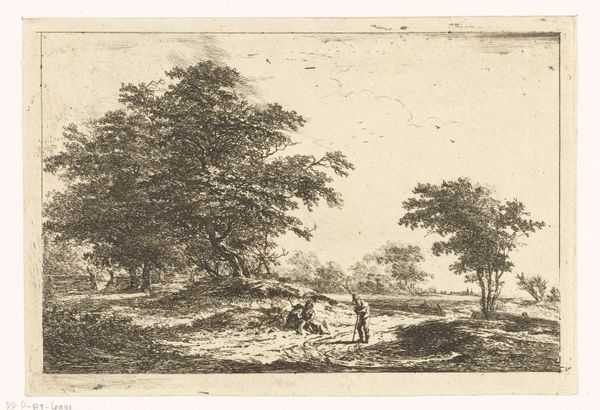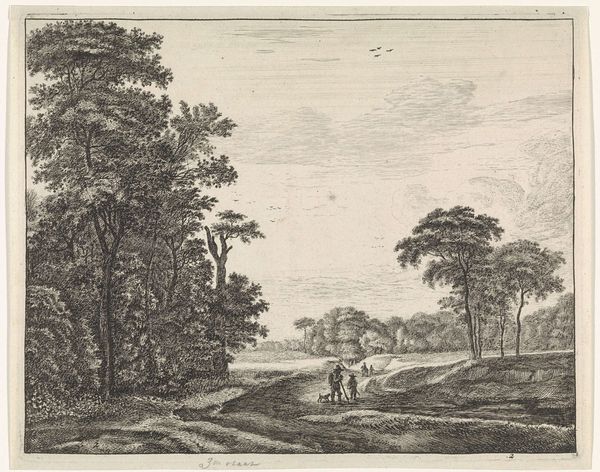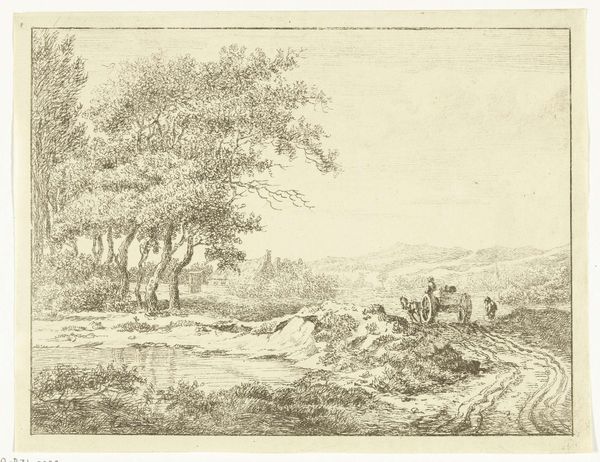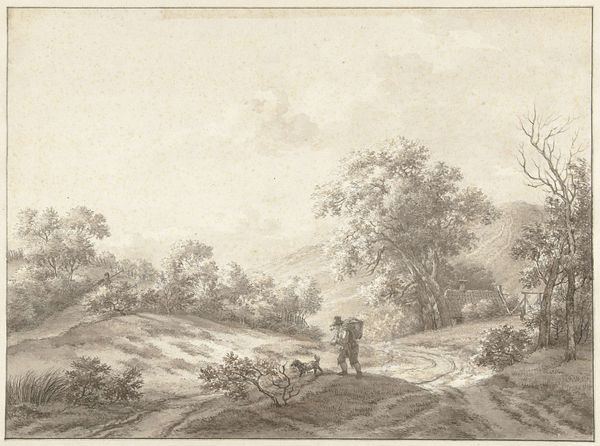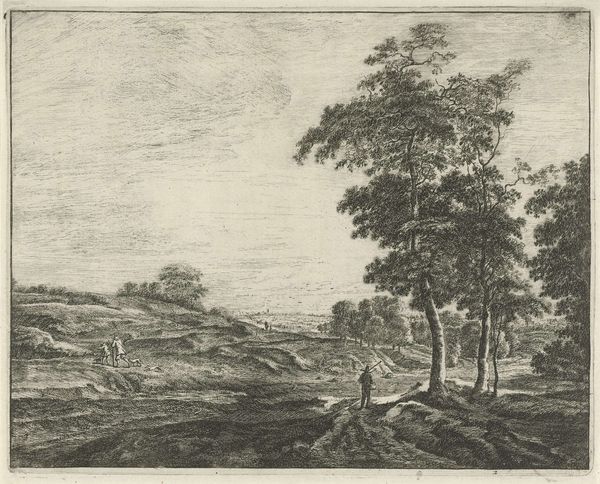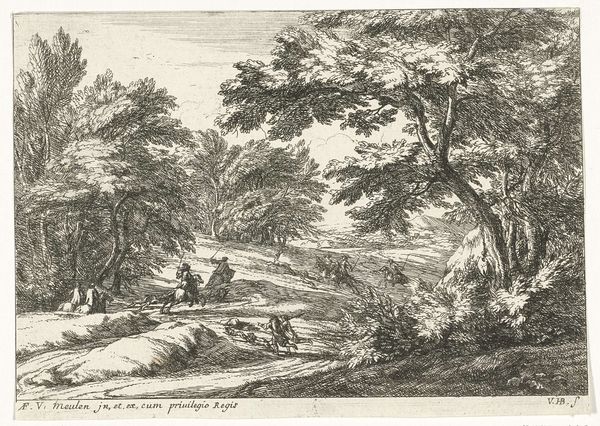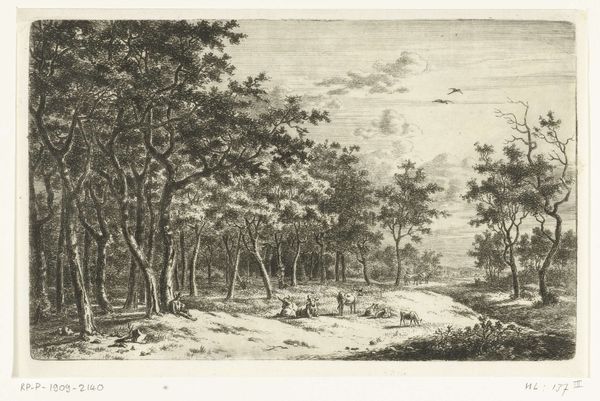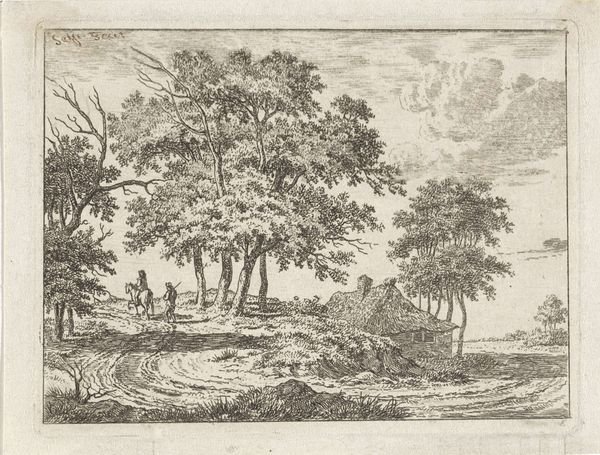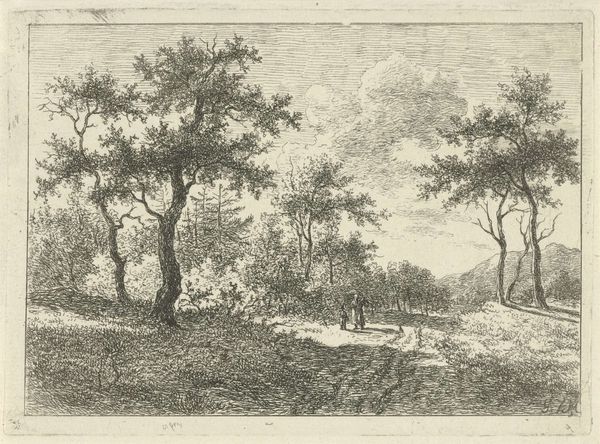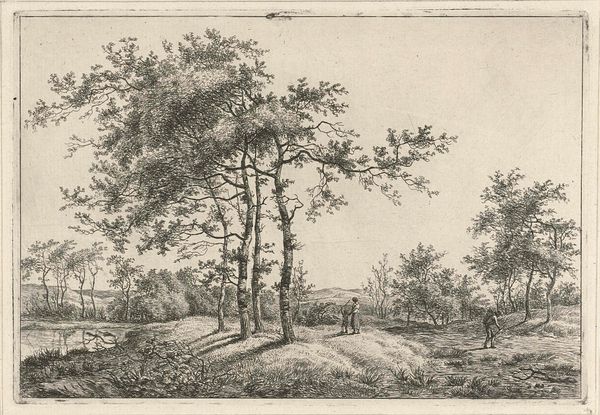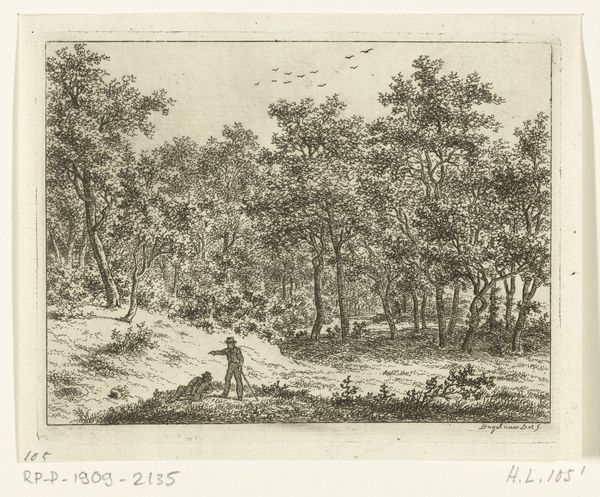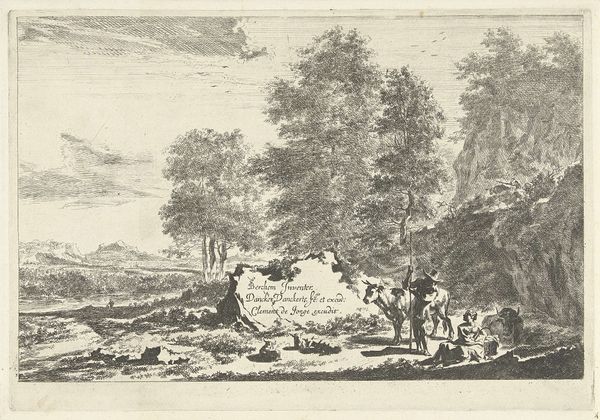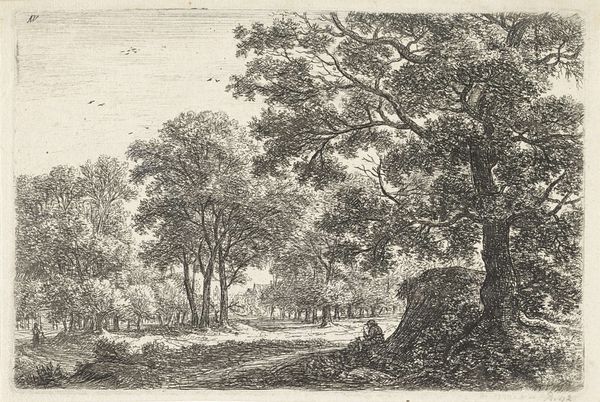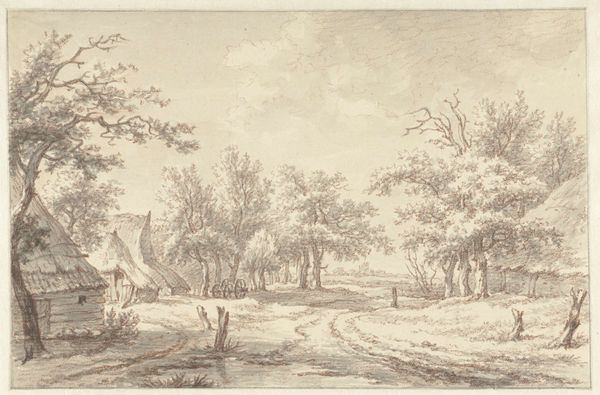
print, etching
#
pen drawing
# print
#
etching
#
landscape
#
romanticism
#
genre-painting
#
realism
Dimensions: height 130 mm, width 202 mm
Copyright: Rijks Museum: Open Domain
Editor: We’re looking at “Landscape with Resting Figures,” an etching and print made before 1815 by Hermanus van Brussel. The scene is rural, dominated by a large tree on a small hillock, under which a group of people appear to be resting. The overall impression is quiet, but almost barren... How should we read this landscape? Curator: It’s fascinating to consider the economic realities embedded within this seemingly idyllic scene. Notice the labor being performed, or perhaps more accurately, the *pause* in labor. This etching, a reproducible medium, made art accessible. But what was the artist trying to *say* about labor? Was it celebrating a break from work, or commenting on the hardship of rural life where even rest is taken in a barren landscape? Consider how the materiality of printmaking, etching in this case, facilitated a wider distribution of such observations. Editor: I hadn't thought about the choice of etching as inherently connected to the subject matter. Are you suggesting the act of creating multiple prints influences how we perceive the social realities within the image? Curator: Absolutely. The mechanical reproducibility democratizes the image, yes, but it also commodifies both the subject of the landscape and labor in this context. Van Brussel isn’t just depicting rest, but producing it for a market. What about the paper? It suggests access but its physical, temporal limits also reminds us to check the colonial background to artistic work, and paper in particular. Where did that raw material come from and who was working to source the fibre for the image? Editor: So, it's not just about the people in the image, but also about the labor and materials involved in the artwork itself, and the potential commentary that this holds about artistic production itself. Thanks, I am starting to see it in a completely different light. Curator: Indeed. Thinking about the broader context really changes how we engage with it.
Comments
No comments
Be the first to comment and join the conversation on the ultimate creative platform.
